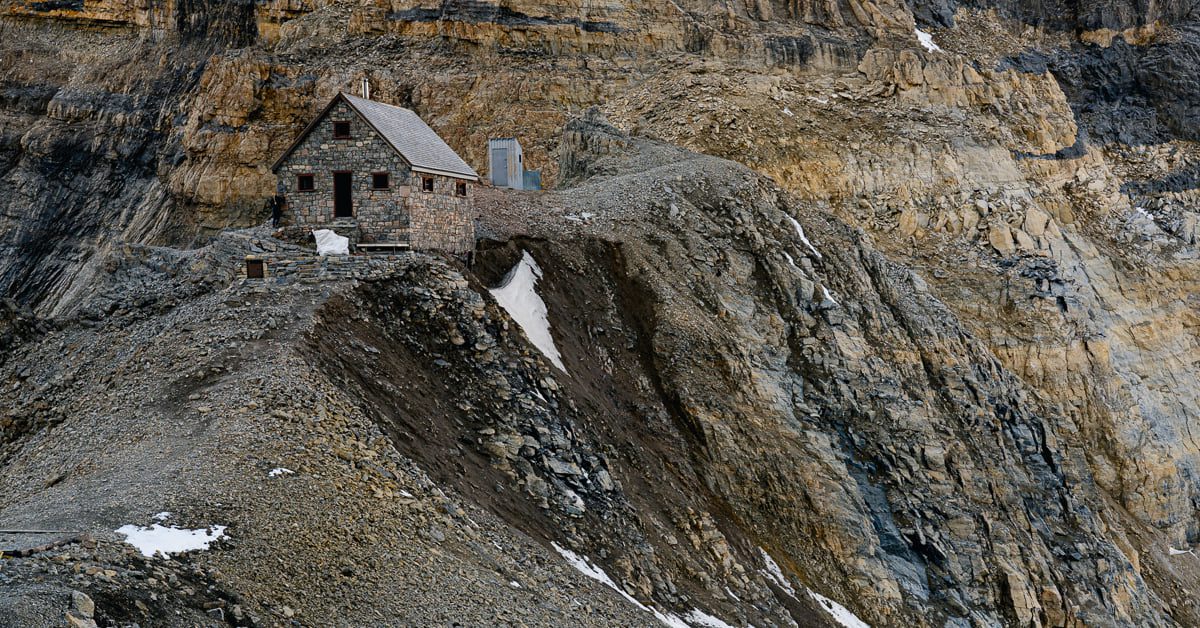A historic cabin in Canada’s Yoho National Park is scheduled to be demolished the rock and soil beneath it is eroding, putting the 100-year-old structure at risk of collapse.
The Abbot Pass Refuge Cabin is a national historic site at 9,600 feet above sea level. The shelter has been a popular destination for hikers and a starting point for mountaineers looking to scale some of the nearby peaks. It was built in 1922 and was once covered in a permanent snow and ice layer, which kept the soil and rock below in place. Now, the structure is undergoing decay.


The cabin was closed to visitors in 2018 for restoration. Parks Canada spent over $600,000 on installing rock anchors beneath the hut. But the next year, work stalled due to bad weather, and in 2020 the covid-19 pandemic further delayed proceedings. Last year, the erosion worsened, with over 4,000 cubic feet of material falling down the slopes under the cabin.
“We’re definitely saddened by the loss of this Alpine refuge due to the effects of climate change,” Alex Kolesch, a senior advisor with Parks Canada, told Inside Climate News. “We look forward to exploring ways to continue to commemorate this important part of Canada’s heritage and this national historic site.”

In regions historically covered by ice, ancient artifacts preserved by frozen soil can emerge after centuries, and if they’re not recovered quickly, they can start rotting.
Though the hut will be wiped from its mountain perch, Parks Canada captured 3D images of the shelter last year, Inside Climate News reported, so the century-old structure can live on digitally.


